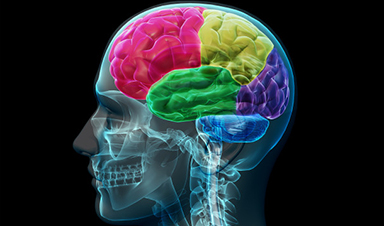Sure, artificial intelligence might end up being the downfall of humanity as we know it — that is, if Elon Musk’s fears come to fruition — but for the time being it’s actually quite useful. A new research effort by an international team of scientists reveals that machine-learning algorithms can be a powerful tool for medicine. The group, which published its work in the journal Nature, managed to create and train an AI to successfully identify different types of brain tumors with impressive accuracy.
In order to identify between different types of brain cancer, the team needed some criteria the computer could use to differentiate between them. With over 100 types of brain tumors already in the medical record, the process of identification can be tricky even for human doctors. The researchers used a DNA process called methylation as a sort of biological fingerprint and taught the AI to tell the difference between which of those fingerprints match specific cancer types.
Like all machine-learning algorithms, the AI needed a base of knowledge from which to draw comparisons. The team fed the computer the data of 2,800 cancer patients as a starting point, allowing it to identify an impress 91 different types of tumors. Then, they asked the computer to identify the type of tumor in over 1,000 known samples and found that the AI’s judgement didn’t match up with the human diagnosis in a number of cases.
As it turns out, the computer wasn’t incorrect in its identification; human doctors had misdiagnosed roughly 12 percent of the previously studied samples and the AI was correct.
Image Credit: Shutterstock
News This Week
Most Plastic in the Ocean Is Invisible—And Deadly
Nanoplastics—particles smaller than a human hair—can pass through cell walls and enter the food web. New research suggest 27 million metric tons of nanoplastics are spread across just the top layer of the North [...]
Repurposed drugs could calm the immune system’s response to nanomedicine
An international study led by researchers at the University of Colorado Anschutz Medical Campus has identified a promising strategy to enhance the safety of nanomedicines, advanced therapies often used in cancer and vaccine treatments, [...]
Nano-Enhanced Hydrogel Strategies for Cartilage Repair
A recent article in Engineering describes the development of a protein-based nanocomposite hydrogel designed to deliver two therapeutic agents—dexamethasone (Dex) and kartogenin (KGN)—to support cartilage repair. The hydrogel is engineered to modulate immune responses and promote [...]
New Cancer Drug Blocks Tumors Without Debilitating Side Effects
A new drug targets RAS-PI3Kα pathways without harmful side effects. It was developed using high-performance computing and AI. A new cancer drug candidate, developed through a collaboration between Lawrence Livermore National Laboratory (LLNL), BridgeBio Oncology [...]
Scientists Are Pretty Close to Replicating the First Thing That Ever Lived
For 400 million years, a leading hypothesis claims, Earth was an “RNA World,” meaning that life must’ve first replicated from RNA before the arrival of proteins and DNA. Unfortunately, scientists have failed to find [...]
Why ‘Peniaphobia’ Is Exploding Among Young People (And Why We Should Be Concerned)
An insidious illness is taking hold among a growing proportion of young people. Little known to the general public, peniaphobia—the fear of becoming poor—is gaining ground among teens and young adults. Discover the causes [...]
Team finds flawed data in recent study relevant to coronavirus antiviral development
The COVID pandemic illustrated how urgently we need antiviral medications capable of treating coronavirus infections. To aid this effort, researchers quickly homed in on part of SARS-CoV-2's molecular structure known as the NiRAN domain—an [...]
Drug-Coated Neural Implants Reduce Immune Rejection
Summary: A new study shows that coating neural prosthetic implants with the anti-inflammatory drug dexamethasone helps reduce the body’s immune response and scar tissue formation. This strategy enhances the long-term performance and stability of electrodes [...]














Leave A Comment